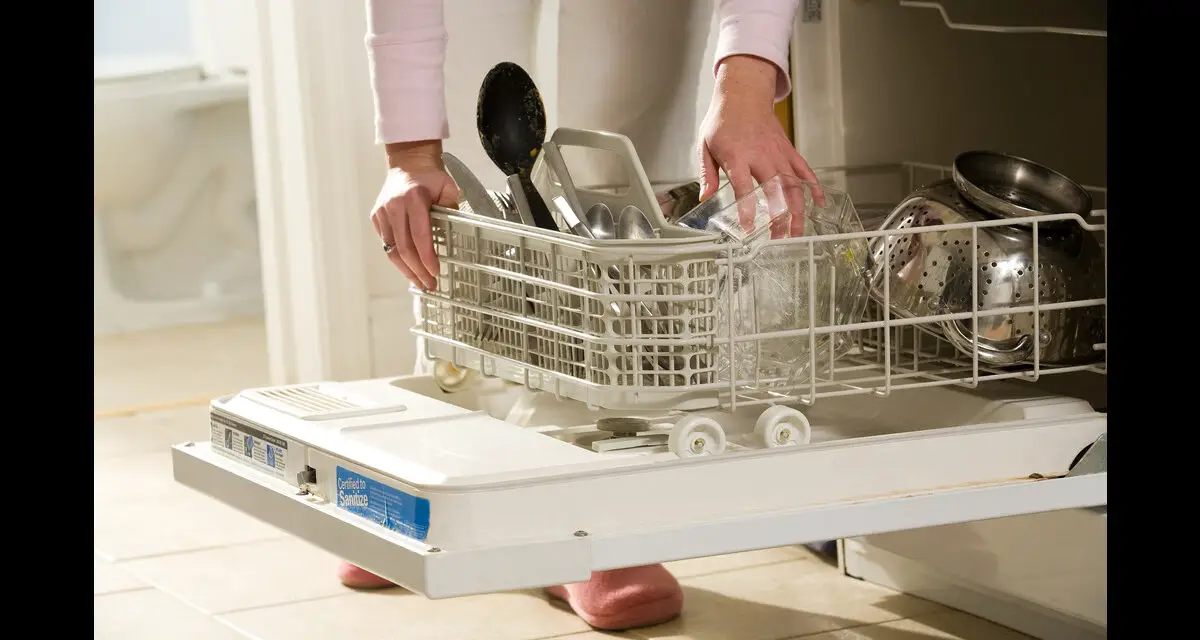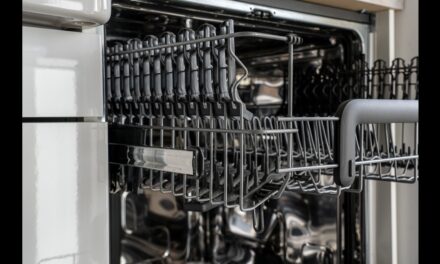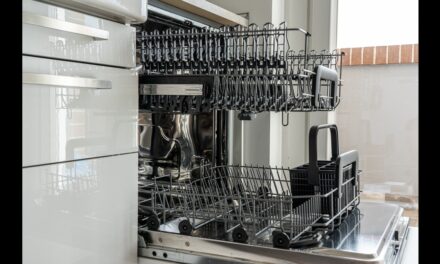KitchenAid is a trusted name in the kitchen industry. However, KitchenAid dishwashers are sometimes prone to technical issues, like stopping in the middle of the wash cycle.
Some of the reasons KitchenAid dishwashers stop in the middle of a cycle include:
- The door is not latched
- The dishwasher is overheating
- The timer is defective
- The dishwasher needs professional repair
Why Does My KitchenAid Dishwasher Stop Mid Cycle?
You’re running a wash cycle in your KitchenAid dishwasher when all of a sudden, it stops.
It’s normal for KitchenAid dishwashers to stop in the middle of a wash cycle for a few seconds. This helps it break down food residue more effectively.
However, if your dishwasher stops completely in the middle of a cycle, it could be a symptom of anything from an unlatched door to a damaged water pump.
If your KitchenAid dishwasher is stopping mid-cycle for an extended period of time, don’t run out and buy a replacement or cash in your warranty just yet.
There are a few easy fixes that could take care of the problem.
The Door isn’t Latched
It goes without saying that your dishwasher’s door needs to be closed for it to run. But, even if you think the door is closed, there is a possibility it isn’t latched properly.
Before starting a cycle, make sure you can hear a “click” when you close the door.
If you’re experiencing this issue every time you run a wash cycle, check the latch for missing pieces or obstructions and replace it if necessary.
Your door may also come unlatched mid-cycle because the dishwasher is overfilled. If you only have this issue sometimes, make sure there are no dishes pushing against the door.
Your Dishwasher is Overheating
It’s dangerous for any appliance to overheat. To help you avoid a disaster, most dishwashers have built-in mechanisms to prevent overheating, like stopping in the middle of a cycle.
Some signs that your dishwasher is overheating include:
- Glassware comes out cloudy
- The dishes feel hotter than usual
- Plastic dishes are slightly melted
A KitchenAid dishwasher could overheat for many reasons, but the two most common include blocked vents and thermostat issues.
The Dishwasher Vent is Blocked
The most common reason your KitchenAid dishwasher is overheating is because of a blockage in one of the vents.
You can find your KitchenAid dishwasher’s vent on the top left side of the door. To check it for blockages, rotate the cover counterclockwise and lift it off.
If you see any food residue or leftover detergent in the vent, clean it out before running another cycle.
An Issue with the Thermostat
Every KitchenAid dishwasher has a built-in thermostat to keep the water at an optimal temperature.
If your KitchenAid dishwasher’s thermostat is not working properly, it may allow the temperature inside to get too hot, or it could gauge the temperature incorrectly and think the dishwasher is overheating when it’s not.
Whatever the case, a damaged or defective thermostat should be replaced as soon as possible to prevent bigger issues related to overheating.
The Timer is Defective
All of your dishwasher’s wash cycles are performed according to a pre-set timer. If your KitchenAid dishwasher is stopping in the middle of a cycle, the timer could be defective.
If you’ve worked with appliances like dishwashers before, you can check it for damage or defects with a visual inspection and a multimeter.
If you haven’t, it’s best to have the timer issue diagnosed by a technician. If your dishwasher is still under warranty, you’ll likely be able to get it repaired for free.
Your Dishwasher Needs Professional Repair
If you can rule out easy fixes, it’s time to call a professional. There are several more complicated reasons why your dishwasher won’t finish a cycle, including damage to:
- The water pump
- The lid switch
- The thermal fuse
- The dishwasher’s breaker
Diagnosing these issues yourself can be tough, even if you have some experience repairing appliances like dishwashers.
The good news is, all KitchenAid dishwashers come with a one or two-year warranty.
If the source of the issue can be traced back to manufacturing defects or damage, you’ll be able to get your dishwasher repaired completely free of charge.



